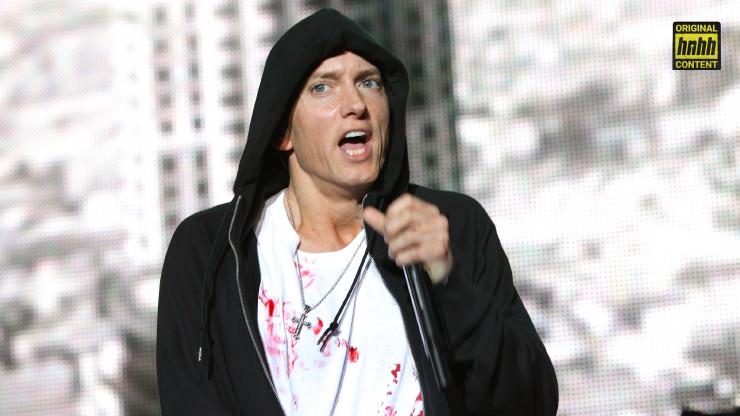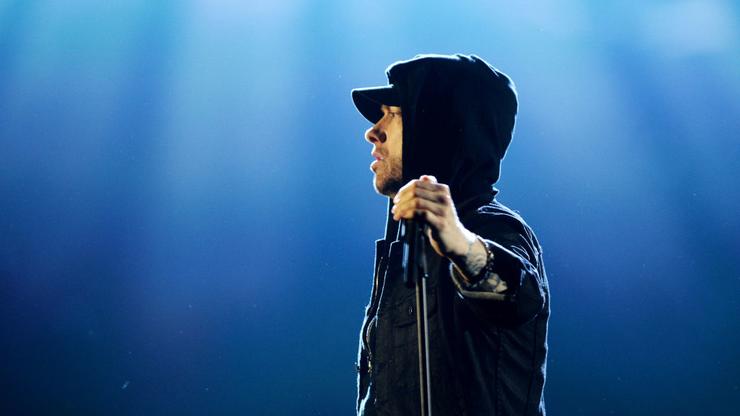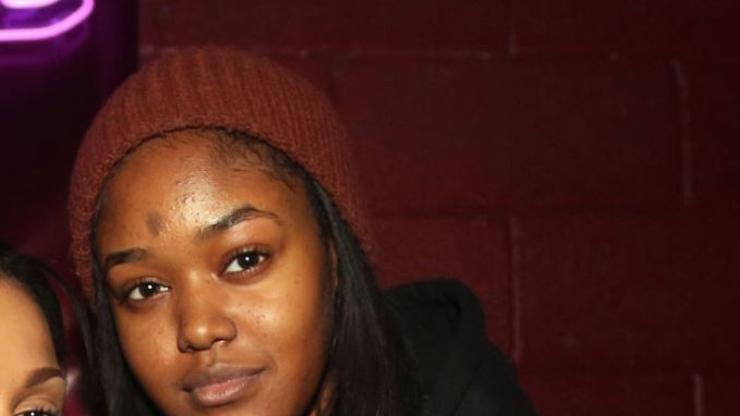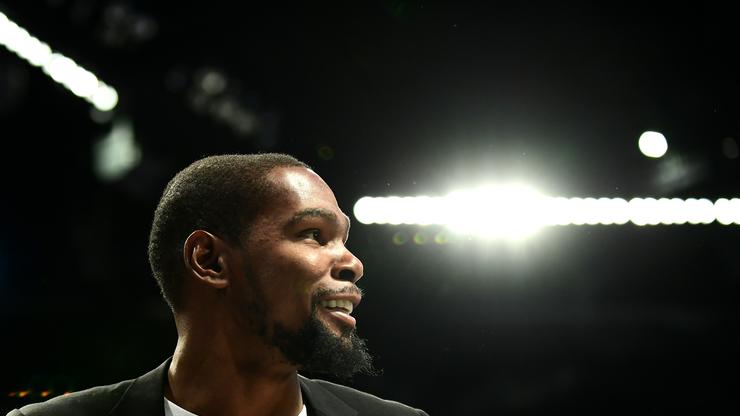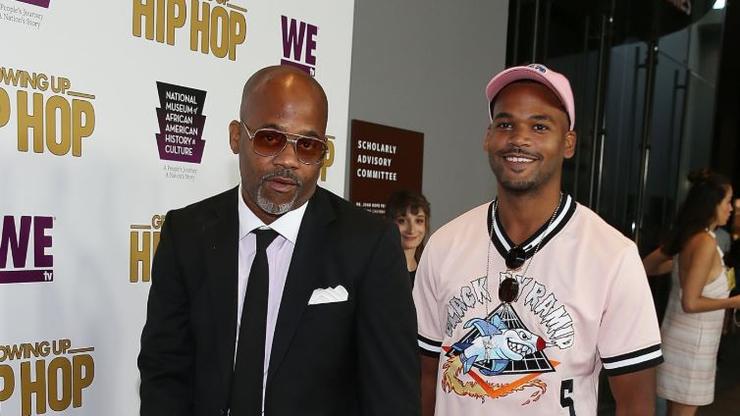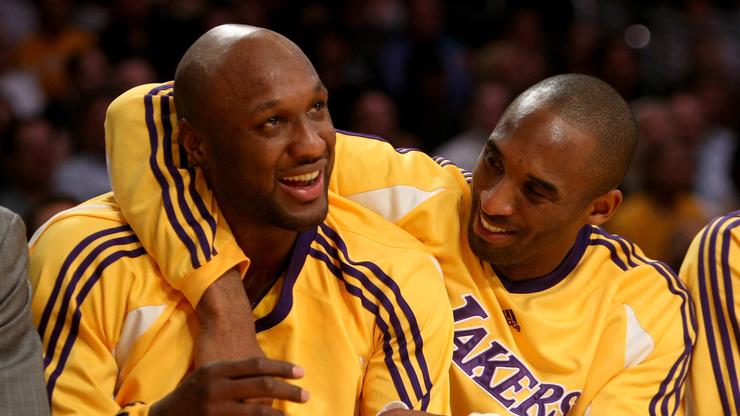There is no Relapse 2,” tweeted Eminem, on April 13, 2010, weeks before dropping off Recovery’s lead single “Not Afraid.”
The sudden revelation was made all the more shocking given that Eminem had all but promised two albums on Relapse. Given that the horrorcore-themed project quickly amassed a loyal fanbase, the news of its sequel’s cancellation was particularly frustrating. Yet given the circumstances — namely Em’s sobriety and self-reinvention as an emcee — the decision to go another direction was ultimately understandable. Though Relapse 2 was no more, Recovery served as an important chapter of the Slim Shady story — one that found him rediscovering his humanity, building on the foundation laid by “Beautiful” and “Deja Vu.”
At the time, Relapse had revealed itself to be somewhat of a niche album. Though the Eminem name ensured commercial success, the macabre subject matter proved divisive. To be expected, as not everybody is eager to engage in murderous and rape-laden fantasies, inspired in part by the mind of serial killers like Ed Gein, Ted Bundy, and John Waye Gacy. Yet those who were found much to enjoy on Relapse and its subsequent expansion Refill, from Dr. Dre’s haunting production to Eminem engaging in the most technically proficient rapping of his career. Much has been made of the infamous accents, with even Eminem decrying them as recently as 2018, but they’re ultimately part of the concept — those who buy into it don’t take issue with them.
Unfortunately, 2009 marked a time where the hip-hop landscape was undergoing a major change. The hierarchy had welcomed a slew of new faces; Kendrick Lamar, Drake, and J. Cole were among three of the most promising young artists. Eminem’s once-mighty Shady Records as presented on The Re-Up had all but dismantled. Contextually, Relapse was a comeback album, the first solo project from Em since 2004’s Encore. When “We Made You” emerged as the lead single, the response was initially wary; many had felt Em no longer had to follow his established formula of a goofier lead single and wondered whether the album would continue along those lines. Second single “3 AM” was met with far more acclaim, though the ultimate direction was beginning to reveal itself. By the time the album arrived in full on May 15th, it became clear that Em was exploring horrorcore territory and committing headlong into the concept.

Jeff Kravitz/FilmMagic/Getty Images
It’s no secret that initial response was divided, with some critics skewing negative. It got so bad that Eminem ultimately canceled his plans to deliver a sequel, despite having allegedly plotted music with Dr. Dre, D12, Lloyd Banks, and 50 Cent, who was actually the reason Em decided to do two albums in the first place. Apparently, Em had recorded so much material during the Relapse sessions that Fif recommended splitting it up, describing the project as thematically and sonically linked to its predecessor; “They tie together,” he had said, in March 2009, giving us reason to believe Em would be revisiting his serial killer’s attire for another go-around. With that in mind, it’s clear that one version of Relapse 2 existed before the first was even released, the product of leftover songs from Slim’s highly productive sessions with Dr. Dre. The project was slated for release in late 2009, which would have been the first time Em dropped two albums in one year.
The gameplan changed when Eminem, Dr. Dre, and Denaun Porter went to Hawaii in the summer of 2009, after Relapse dropped and the reception had begun settling in. Holing up in the Honolulu Studio, Em proceeded to start work on a new batch of music. It didn’t take long for the songs created during the Hawaii sessions to spark Em’s creativity, to the point where he felt that the new tracks were far superior to what he had originally lined up. But what were those songs? Given the timeline, as well as the fact that Dre and Mr. Porter were among those present, it can be assumed that “On Fire,” “So Bad,” “Ridaz,” and possibly even “The Warning” were among the tracks recorded in Hawaii. As fans know, those songs ultimately ended up on Recovery, but seeing as Em still intended to drop Relapse 2 as planned, it’s likely those tracks formed the basis of a new version of the anticipated sequel.
Confusing, to be sure — but remember that at one point, there were actually two versions of Relapse 2. The original, made-up of Dr. Dre produced leftovers from the Relapse sessions. And the revised, which began to take shape after the Hawaii sessions, which found Eminem considering the possibility of steering the course in a different direction. After Dre left Hawaii to commence work on his own lost album Detox, Em was at a crossroads of sorts — he clearly had no interest in revisiting his older material, especially after a promising new batch of songs. In October 2009, producer Just Blaze confirmed that he had been spending the entirety of August and September working with Eminem on a project he described as Relapse 2. That same month, Eminem confirmed that Denaun Porter had “two tracks” on the album, furthering the narrative that “On Fire” was meant for the revised Relapse 2.

Chelsea Lauren/Getty Images
A curious development occurred when Em delayed Relapse 2 to 2010, instead concluding the year with Relapse: Refill. The re-released project featured an additional seven songs, including the Dr. Dre assisted “Hell Breaks Loose,” “Buffalo Bill,” “Elevator,” “Taking My Ball,” “Drop The Bomb On Em,” and “Music Box.” While this is hardly confirmed, an inference can be made that Em had already moved on from the original Relapse 2, shifting focus to its revised variant. With that being said, if Em had already made the decision to change the gameplan, it’s entirely possible he preserved the original Relapse 2 highlights and repackaged them on Refill. It would certainly made sense for songs like “Buffalo Bill” and “Music Box” to have stemmed from those sessions, given the subject matter sharing strong similarities to the first installment. Dre’s production team also speaks to this hypothesis, with both Mark Batson and Dawaun Parker serving as co-producers on four of Refill’s tracks.
If it can be reasoned that Refill made up a chunk of the first Relapse 2, one might deduce that the surviving songs were the ones Em felt to be the standout cuts. While it’s entirely possible that Slim went back to the vault for Refill, it’s hard to imagine him turning his back entirely on his original album, even if his mind was already made up. This is seemingly confirmed by Em himself, who opened up about his thought process during a Refill announcement reveal. “The new tracks started to sound very different than the tracks I originally intended to be on Relapse 2, but I still want the other stuff [Relapse: Refill] to be heard,” he explained.
And like that, mere months later, the bomb was indeed dropped as threatened: “There Is No Relapse 2.” Before long, Eminem had delivered Recovery, the album previously known as Relapse 2, which grew into being from another, decidedly more deranged version of Relapse 2. When fans clamor for Relapse 2, it’s this original version they likely desire. And given that Refill was at most six songs — because let’s be honest, “Forever” was never meant to appear on it — there remains a solid chunk of the album that has yet to see the light of day. Even the leaks that did surface, like “Oh No,” the B.O.B-featured “Things Get Worse,” and the emotional Cocaine” appear unclear in origin. The former might easily have slotted onto a Relapse 2, but Em’s allusion to a forthcoming sequel suggests a part one leftover.
Alas, it’s highly unlikely that Eminem ever revisits the folder containing his lost project — even though Relapse has since experienced retroactive acclaim, a transformation he must have surely noticed. It’s bittersweet truth to bear, made all the more so by 50 Cent’s latest update on the project, spoken to DJ Whoo Kid in July of 2018. “When we did Relapse, we did Relapse 1 and 2,” reminisced Fif. “My favorite music was on 2. We collaborated on a lot of joints on the second one.” True, Slim might throw fans a bone once and a while, donning the bloody apron for old time’s sake on a track like “Framed.” But for all intents and purposes, Relapse 2 has become another chapter of hip-hop’s ever-growing tome of lost lore and mythology.

